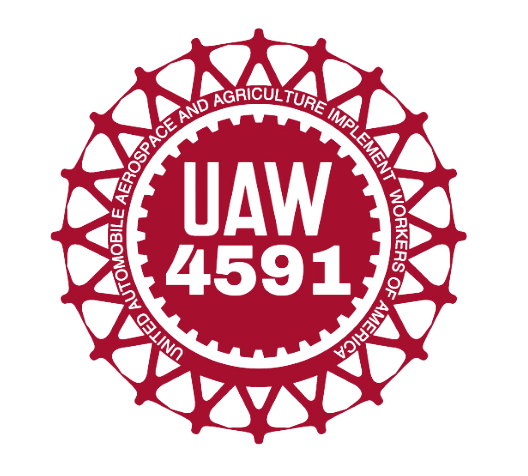By Shannon Kozlovich
As a PhD student in Pharmaceutical Sciences at Washington State University, I learned the hard way that bullying, inappropriate behavior, and total lack of institutional support take a long-term toll on one’s life and career in science. Others like me — women and LGBTQ+ people — experience the same fate, fighting a rigged system, ultimately to be forced out. I’m speaking out now as a scientist who has seen the difference a union makes.
My WSU supervisor had power over me in ways I only realized much later. He built a toxic lab environment through intimidation, sex discrimination, and other inappropriate conduct. He controlled everything from my graduation date, to publication timelines, to whether I could submit a grant application. Like so many workers facing a power imbalance, I was forced into silence because I was critically dependent on his approval.
Things got worse steadily and gradually; I was nearly broken before I even knew how bad it was. He often made backhanded compliments designed to acknowledge that I was smart, but also unattractive. One time he was commenting on awards that myself and two other women in our lab received, saying, basically, “At least I know you are good at science. Look at you, I don’t wonder why you win awards.”

The level of anti-LGBT rhetoric was intense. When I mentioned an LGBT family member, he told me how utterly disappointed and distressed he would be if one of his kids were gay. I had to listen to all of his homophobic and transphobic reasons why. I wasn’t going to tell him I was LGBT, being a woman in his lab was bad enough.
Any time we talked about the work of a scientist he knew was a woman, there was always conversation about her attractiveness. One day, I asked about the possibility of collaborating with my undergrad research advisor. He made a quip along the lines of, “That depends, is she good looking?” This never came up when we spoke about the science produced and published by men.
He often needed his ego stroked. Once, he told me a story about a university function where a woman was “pawing all over him” because, “I’m a good-looking guy, right? Right?” He’d made it clear in the past that disagreeing with him came with consequences to my research progress, it felt like I had no choice but to agree.
There was subtlety in his behavior. I felt like his conduct was wrong, but I wasn’t sure whether he was crossing some legal line. He never put his hands on me, but one time he asked for a hug, at a conference, in front of other people. What was I going to do, say no and embarrass him? As uncomfortable as I was, I knew that I couldn’t react to him the way I wanted to without jeopardizing my future.
Early on, if I tried to assert myself I would get put down and reminded that my academic success rested with him alone. By my second year, I learned to adjust my responses to keep him happy. But it also made me struggle with self-blame. Was I the problem for not putting a stop to his conduct? Was there more I should do?
I tried to make my situation bearable without abandoning — or ruining — my career. I sought support from higher levels in the University administration, I sat down with people in positions of power, including the Vice President of Student Affairs. I asked about moving mentors and was told that my only option was to start over — new advisor, new project, years down the drain. My graduate student advisor basically told me it was an “individual” problem, and that I needed psychological services.
I was on my own and powerless.
As soon as I completed my degree, I left WSU and got as far away from him as I could. My experiences haunted me; his voice still does. I left academia so he no longer has power over me or my career progression. He is still supervising students. He’s a product of a system of severe power imbalances, that condones bullying and harassment every day.
I did my postdoc at the University of California San Francisco, which has a postdoc Union. I saw how having a union gives you more power to speak out when things are not right, and enforceable processes to follow to access recourse.
With a union, workers have the power to have a real say over working conditions — and that’s important for correcting potentially dangerous power imbalances. This is what workers at WSU and across the country need so that scientists can thrive and finally change the status quo.
Dr. Kozlovich holds a PhD in Pharmaceutical Sciences with a focus on research in tobacco and tobacco-related cancer. She is an openly bisexual woman fighting for LGBTQ+ civil rights, social justice, and health equity.
